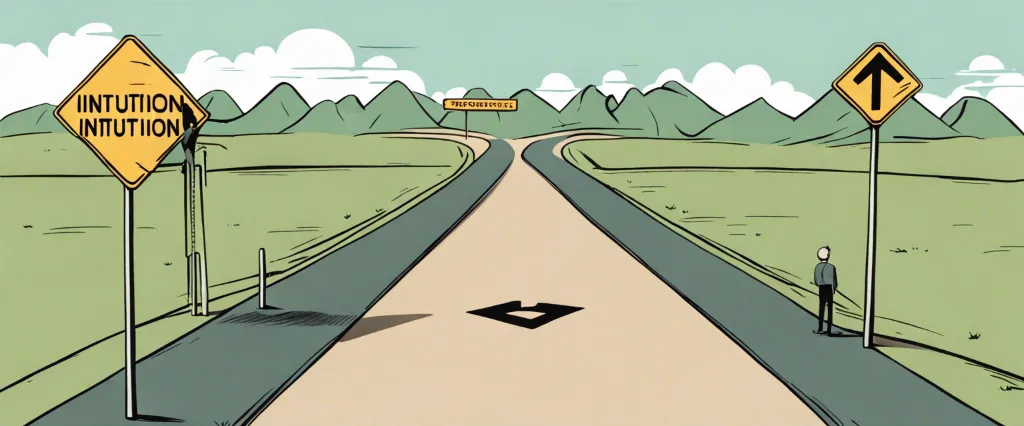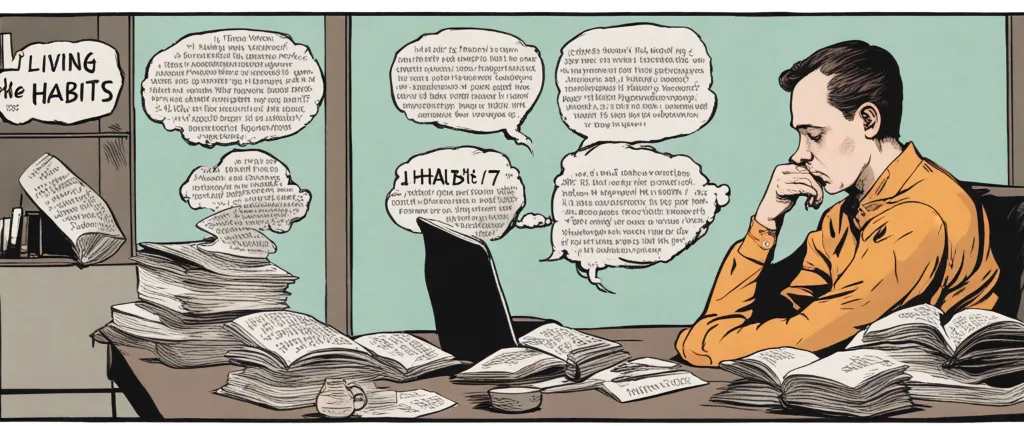
In the realm of personal growth and self-improvement, a myriad of books and philosophies have emerged over the years, each offering its own unique insights and methodologies. Among these influential works, two powerful literary contributions have captured the attention of countless individuals seeking personal transformation: “Zero Limits” by Joe Vitale and “Living The 7 Habits” by Stephen R. Covey. While both books share a common goal of guiding readers towards a more fulfilling life, the approaches taken by Vitale and Covey diverge significantly. In this comparative study, we delve into the profound principles and strategies proposed by these two renowned authors, exploring their divergent perspectives on personal growth, healing, and the pursuit of purpose. By examining and contrasting their methodologies, we aim to unravel the underlying truths and uncover the diverse paths these extraordinary writers illuminate on the journey towards self-realization.
Brief Summary of Two Books
Zero Limits by Joe Vitale
Zero Limits is a self-help book written by Joe Vitale, in collaboration with Dr. Ihaleakala Hew Len. It explores the ancient Hawaiian healing technique known as Ho’oponopono and delves into its transformative power to achieve freedom, happiness, and success.
The book is divided into three parts. The first part introduces the author’s encounter with Dr. Hew Len, a psychologist who successfully treated an entire ward of criminally insane patients without personally meeting any of them. This baffling approach involved Dr. Len continuously repeating the mantra “I’m sorry, please forgive me, I love you, thank you,” to himself while reviewing each patient’s records. Vitale becomes intrigued by this process and decides to investigate further.
In the second part, the book delves into the core principles of Ho’oponopono, explaining that we are solely responsible for everything that comes into our lives, as we attract our reality based on our inner beliefs and perceptions. Ho’oponopono offers a powerful tool for releasing negative thoughts and emotions, and accepting responsibility for these aspects within oneself. By using the four phrases of the mantra, individuals can cleanse their subconscious mind and let go of past traumas and limitations.
Lastly, the book provides practical steps and techniques for actively applying Ho’oponopono to one’s life. It emphasizes the importance of taking full responsibility for everything experienced and utilizing the mantra to sincerely apologize, seek forgiveness, express love, and show gratitude. Vitale also includes numerous success stories of individuals who have transformed their lives through Ho’oponopono, eliminating personal barriers to achieve happiness, abundance, and authentic self-expression.
Overall, Zero Limits offers a unique and profound approach to personal transformation, promoting forgiveness, love, and gratitude as the keys to unlocking limitless potential and achieving true freedom. With its inspiring anecdotes and practical guidance, the book serves as a roadmap for readers seeking profound change in their lives.
Living The 7 Habits by Stephen R Covey
“Living The 7 Habits” is a self-help book written by Stephen R. Covey, who is best known for his best-selling book “The 7 Habits of Highly Effective People.” In this book, Covey provides a deeper understanding of the seven habits and how they can be integrated into daily life to achieve personal and professional success.
The seven habits discussed in the book are: Be proactive, Begin with the end in mind, Put first things first, Think win-win, Seek first to understand, then to be understood, Synergize, and Sharpen the saw. These habits are presented as a framework for personal development and effectiveness.
Covey emphasizes the importance of taking control of one’s own life and being proactive, rather than being reactive to external circumstances. He encourages readers to clarify their values, set goals based on those values, and prioritize their activities accordingly. This involves planning and organizing one’s time effectively and focusing on what truly matters.
The author stresses the importance of developing strong interpersonal skills, including effective communication, empathy, and cooperation. He discusses the concept of win-win relationships, where individuals seek mutually beneficial outcomes and work together to achieve them. Covey also emphasizes the need to listen actively and understand others before attempting to be understood.
Furthermore, Covey introduces the idea of synergy, which refers to the benefits that arise when individuals work together and leverage each other’s strengths. He explains how synergy can result in improved solutions and enhanced creativity.
Covey concludes the book by highlighting the importance of personal renewal and self-care. He discusses the concept of sharpening the saw, which involves taking care of oneself physically, mentally, emotionally, and spiritually. By investing in personal growth and renewal, individuals can maintain their effectiveness in the long term.
“Living The 7 Habits” serves as a guide for readers seeking to transform their lives by adopting the seven habits into their daily routines. It provides practical strategies, examples, and exercises to help individuals integrate the habits and create positive change in various aspects of their lives.
Comparison between Two Books

Similarities in Money
Both “Zero Limits” by Joe Vitale and “Living The 7 Habits” by Stephen R. Covey discuss the topic of money and its role in life. Although the books have different focuses, they share a few similarities regarding money:
1. Money as a means, not an end: Both books emphasize the idea that money should not be the ultimate goal in life. Instead, it should be seen as a tool to achieve greater purposes and contribute to a fulfilling life.
2. Financial responsibility and management: Both Vitale and Covey stress the importance of responsible money management. They emphasize the need to establish budgets, control expenses, and invest wisely to ensure financial stability and security.
3. Law of Attraction and abundance mindset: In “Zero Limits,” Vitale discusses the importance of aligning one’s thoughts and beliefs with the Law of Attraction to attract abundance, including financial abundance. Similarly, Covey talks about developing an abundance mindset in “Living The 7 Habits” by focusing on abundance rather than scarcity when it comes to money.
4. Money and values alignment: Both authors highlight the significance of aligning personal values with financial decisions. They emphasize the need to prioritize spending on things that truly matter, such as personal growth, relationships, contributions to society, and experiences, instead of shallow material possessions.
5. Lifelong learning and financial literacy: Both books emphasize the importance of continuous learning in the realm of personal finance. Vitale and Covey both suggest the need to educate oneself about money management, investments, and financial planning to make informed decisions.
In summary, while “Zero Limits” primarily focuses on personal development and spirituality, and “Living The 7 Habits” concentrates on holistic personal growth, both books acknowledge the role of money in life and stress the importance of responsible financial management and aligning money decisions with personal values.
Divergences in Money
Zero Limits by Joe Vitale and Living The 7 Habits by Stephen R Covey are two highly influential self-help books that offer different approaches to personal development and inner growth. While both books touch upon the subject of money, they diverge in their perspectives and emphasis on its role in living a fulfilling life.
In Zero Limits, Joe Vitale focuses on the concept of Ho’oponopono, a Hawaiian healing technique that aims to release negative beliefs and memories. Vitale describes money as a reflection of the state of the individual’s internal world and beliefs. According to him, money is attracted by aligning oneself with positive energy and releasing any limiting beliefs or blockages to its flow. Vitale’s approach suggests that by focusing on personal growth, aligning one’s intentions with the universe, and adopting a mindset of abundance, the individual can attract wealth effortlessly.
On the other hand, Stephen R Covey’s Living The 7 Habits takes a more comprehensive approach to personal development by outlining principles and practices for living a balanced and effective life. Covey emphasizes the importance of understanding the concept of “abundance mentality” rather than a scarcity mindset when it comes to money. Unlike Vitale, Covey’s focus is not solely on attracting wealth but on cultivating an overall sense of abundance in one’s life, which includes relationships, time management, and personal growth. Covey suggests that a healthy relationship with money is achieved not by solely seeking wealth but by understanding its role in achieving a well-rounded and balanced life.
The divergence between the two books becomes apparent in their respective focus on money. Zero Limits puts a strong emphasis on aligning oneself with abundance and attracting money through a positive mindset and internal transformation. It suggests that money is a reflection of one’s internal state and can be effortlessly attracted through the correct mindset and beliefs.
In contrast, Living The 7 Habits takes a broader perspective by emphasizing the development of a holistic mindset focused on abundance in all aspects of life, rather than solely on wealth accumulation. Covey believes that money is just one aspect of a fulfilling life and that it cannot be pursued at the expense of other important aspects, such as relationships and personal growth.
Overall, while both books touch upon the subject of money and its role in personal development, they diverge in their approaches. Zero Limits places a stronger emphasis on manifesting abundance and attracting wealth, whereas Living The 7 Habits takes a more balanced and comprehensive approach, understanding that money is just one aspect of a well-rounded and fulfilling life.

Conclusion
Both “Zero Limits” by Joe Vitale and “Living The 7 Habits” by Stephen R Covey are valuable books in their respective areas. The choice between them depends on your interests and what you are looking to gain from reading.
“Zero Limits” by Joe Vitale focuses on the principles of the Hawaiian healing technique called Ho’oponopono. It delves into the idea of taking responsibility for our actions, thoughts, and emotions, and using forgiveness and gratitude to bring about personal transformation. This book is suitable for individuals interested in personal growth, spirituality, and alternative healing methods.
On the other hand, “Living The 7 Habits” by Stephen R Covey is centered around Covey’s renowned framework, “The 7 Habits of Highly Effective People.” It provides practical strategies for personal and professional development, emphasizing principles such as proactivity, prioritization, and effective communication. This book is ideal for those seeking guidance on self-improvement, leadership, and overall success in life.
In summary, if you are interested in exploring spirituality, alternative healing, and personal transformation, “Zero Limits” by Joe Vitale may be more worthy of reading for you. However, if you are looking for practical guidance on personal and professional development, leadership, and success, “Living The 7 Habits” by Stephen R Covey would be a better choice. Ultimately, both books offer valuable insights, and it depends on your individual preferences and goals.


